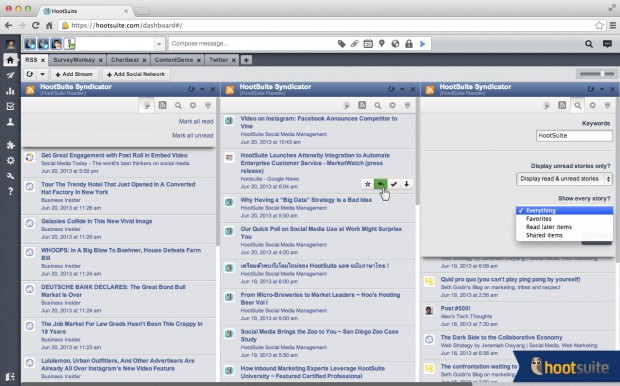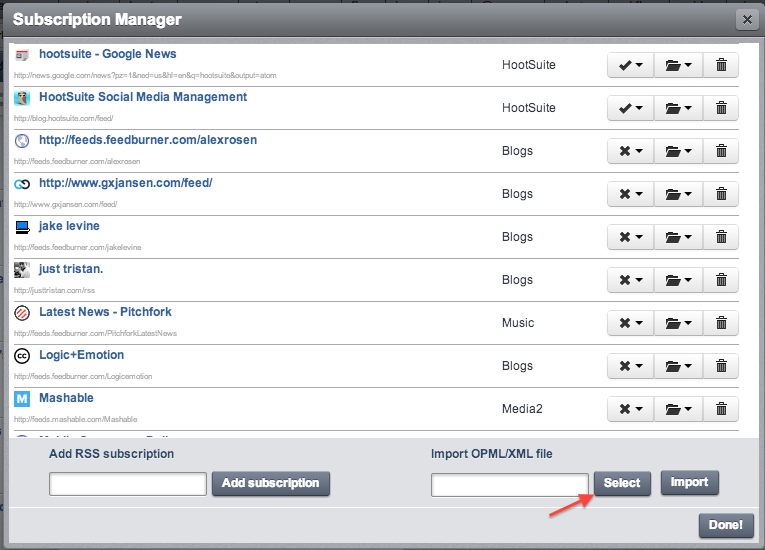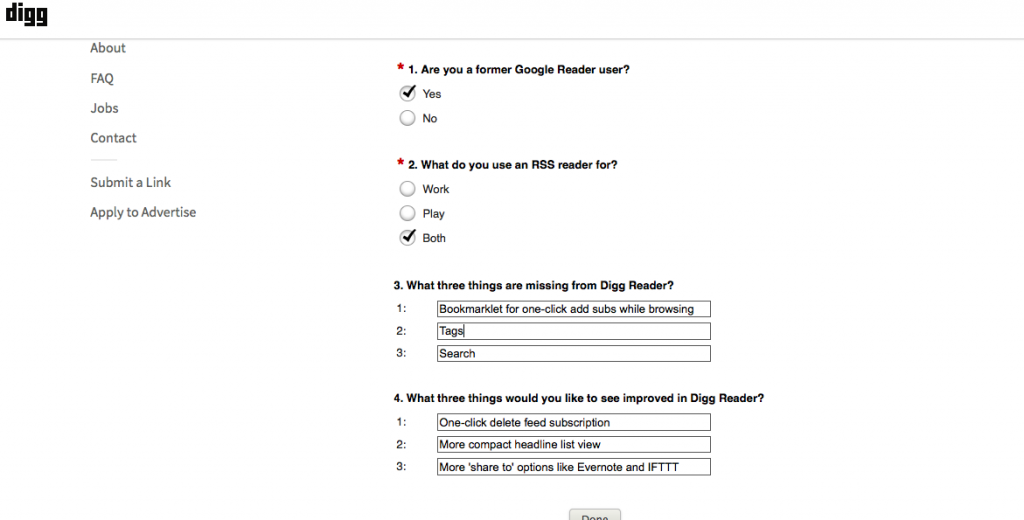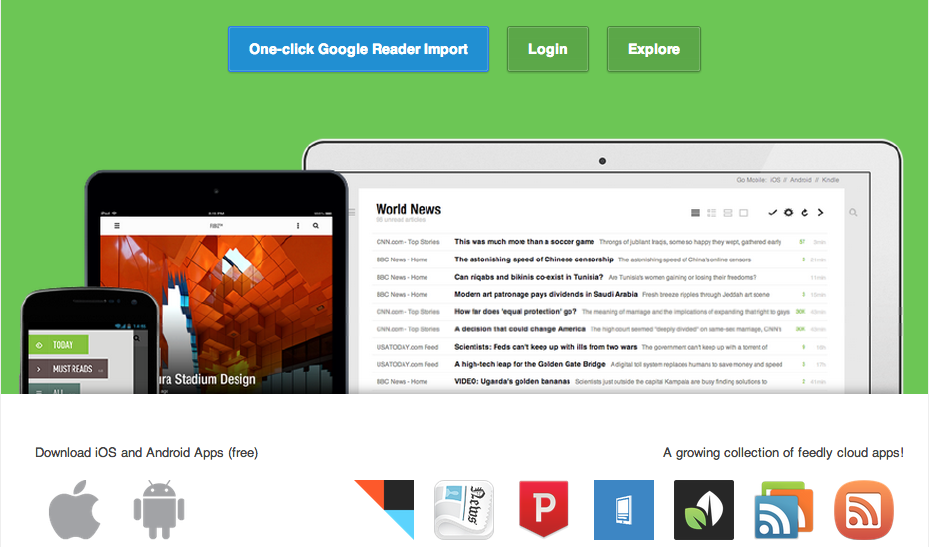A trip back in time begins to explain why today’s close down of Google Reader is such a big deal for content marketers. Google Reader evolved in parallel with an increasing volume of information and social media channels and as content marketing became more and more important. Many of us became dependent on this one-stop aggregator that collected updates (RSS feeds) from all your favorite blogs and websites in an easy-to-read format.
The Information Surge and Google Reader
- Between 2004 and 2005, blogs were estimated to increase from 2.4 million to 11.7 million by at least one estimate
- 2004, Facebook launches
- 2005, Google Reader launches
- 2006, Twitter launched
- 2006, mobile interface added
- 2007, subscriptions to YouTube video added
- 2007 to 2011, items in Google Reader could be shared with other Web users
- 2011, Google+ launched
- 2011, Former Google Reader social features (“share” and “like” buttons) were removed and replaced by Google+’s +1 button and the “share on Google+” box
- 2012, 87.8 million blogs on Tumblr alone
- March 13, 2013, Google announces that Google Reader would be closed on July 1, 2013
The Rise of Content Marketing
Meanwhile, content marketing becomes a core strategy for both B2B and B2C marketers.
A Content Marketer’s Criteria for Alternatives
While there are many lists of Google Reader alternatives out there, I’m in agreement with TechCrunch’s Sarah Perez who concluded there is no real replacement right now. But it’s not as if an active content marketer can sit and wait while there are blog posts to write, Facebook posts to develop and tweets to create. Here are the criteria I’ve used to whittle our list of contenders down to three possibilities:
- Simple import of Google Reader data file
- Compact, uncluttered display of headlines
- As few clicks as possible to mark as read, add new subscriptions, delete subscriptions, and share
- Inline preview of article content and images
- Categories, folders and tags for organizing large collection of RSS feeds
- Multiple sharing options, with the most important for our workflow being Evernote, email, Pocket, and social media management platforms
- Ideally, ability to publish an RSS feed of shared or saved items
3 Top Contenders (and Why)
In reverse order by date of announcement and number of available critiques, here are my three top contenders for Google Reader alternatives, and why they’re each not quite acceptable as of July 1st, 2013.
HootSuite Syndicator
HootSuite was late to this party, announcing their new RSS service for accounts just a few days before Google Reader’s demise. As is to be expected during the first few days, there are a few a few glitches to work out. My fix wish list:
- Slow and counter-intuitive process and icons for the Google Reader import and feed organize functions. (An ‘X’ does not imply ‘add this’ to me, and apparently for many others based on the comments.)
- One-click Hootlet ‘add RSS feed’ function is buggy and only available for the Chrome browser at the moment.
- Previews are not in line. Clicking on a headline opens a preview pop-up window, which then must be closed to reactivate the sharing buttons. This will be a knockout factor for me if not corrected quickly.
- Less critical, but annoying when you have multiple groups/folder as I do, is the reverse visibility of the column stream headlines. I understand I’m in HootSuite Syndicator, please make the name of the group/folder larger and at the top of each column.
- Search feeds function missing (as it is for every alternative at the moment)
Despite what looks like a long list of issues, it’s very hard to ignore the advantage of having the content you want to share delivered right into your social media management platform (and already being paid for).
Digg Reader
Although Digg announced in March that a new reader was on its way, beta testers only received an invitation early last week with the public version not available until June 29th. The potential for Digg Reader lies in its tight integration with Digg.com’s content discovery and trending information from the ubiquitous ‘thumbs up’ as other users ‘Digg’ articles and videos. While the Digg Reader data import and its faithful match to core Google functionality are slick, here are the shortcomings I shared with Digg as feedback on the beta build version I used.
Feedly
Feedly’s RSS reader has been around the longest and comes closest to looking and acting like Google Reader. FAQs, support and how-to information are readily accessible and solid. Most appreciated is the added functionality available through IFFT, which enabled me to quickly replace sharing to Evernote, Pocket or via email. The feed search function is not yet ready, and the mobile app on an iPhone is clunky, but to me Feedly’s greatest weakness is that it is yet another stand-alone service to be integrated into your content marketing workflow.
Next…
So there’s no clear-cut replacement for Google Reader yet in my mind. Over the next month or so, all three of these alternatives will continue to be tested and evaluated here in our shop. Have you made a decision yet?
Resources
There Is No Google Reader Replacement, Only Alternatives | TechCrunch
Farewell, Dear Google Reader : The New Yorker






